Be innovative – Subscribe, share the love, and write an iTunes review at TheModernMD.com/review
Dream Big and Make it Happen,
Dr. Goodman
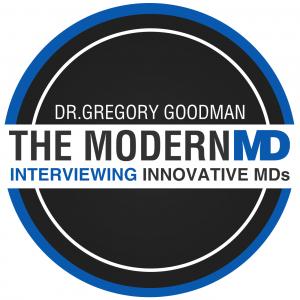
Friday Feb 05, 2021
Friday Feb 05, 2021
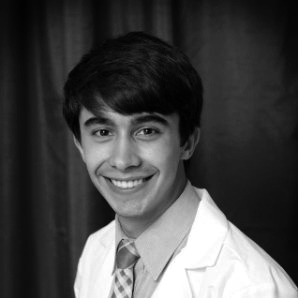
Ajay Major shares his entrepreneurial journey and passion for helping medical student share their voice and change healthcare!
Ajay Major is an entrepreneur, medical student activist, and aspiring physician-journalist. He is Founder and Editor-in Chief of in-Training, the online magazine by medical students and for medical students, at in-training.org. He also Founded in-House, the online magazine for residents and fellows, at in-housestaff.org. He was a nominee of MedTech Boston’s 40 Under 40 Healthcare Innovators Awards. Ajay is currently a 4th year medical student at Albany Medical College.
Ajay
Ajay was selected for the Leadership in Medicine Program, an eight-year combined BS/MBA/MD program with Union Graduate College and Albany Medical College. His passion for journalism started with his work as the Editor-in-Chief of the Concordiensis, Union College’s weekly student newspaper. As he started medical school, he saw an opportunity to combine his passion for journalism and Founded in-Training, an online magazine by medical students for medical students, as a platform for experimentation and expression.
The Idea: Why is it important for medical student and residents to have a voice? Listen as Ajay shares his vision for creating a spectum of publications that span the medical education journey and his exciting work at in-Training and in-House!
Lesson Learned: Do you homework before you launch your venture. Make sure to build a structure for continuity. Continue to write chart your progress with a structure in place that will allow you to stay ahead of the game.
Best Advice: Find a partner in crime, who understands you, and is willing to fully participate as well as operate on your same level.
Daily Success Habit: Before bed, review your email inbox and make a list of what needs to get accomplished in the next 24 hours. Review your list the next morning, and stay mindful of the process.
Healthcare Trends: Medical school is going through a major revolution which will favor new models to train and educate the next generation of medical students. Physicians will be trained not just clinically but also in new roles of such as advocacy, information technology, quality improvement.

Friday Feb 05, 2021
Friday Feb 05, 2021
Friday Feb 05, 2021
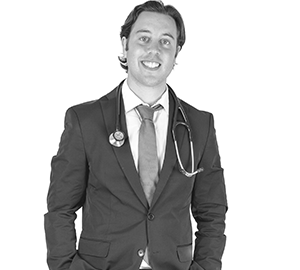
Dr. Gregory Goodman, Founder & Host, shares some of his best insights to help you on your entrepreneurial journey.
Albert Einstein
Dr. Gregory Goodman shares some exciting updates on his current journey as an internal medicine resident and entrepreneur.
People: Great companies are built with great people – learn to build excellent teams that are passion your vision.
Problem: Work on the biggest problems in healthcare and solve your customers biggest problems.
Perfection: Entrepreneurship rewards movement not perfection.
Daily Success Habit: The sprint – Listen to my new success habit!
Healthcare Trends: As a future primary care physician, I am excited about the promise ofDirect Primary Care.
Thanks for you continued support – Show The ModernMD some love and share your comments below!
Submit an iTunes review: https://itunes.apple.com/us/podcast/the-modern-md/id997010340?mt=2
Follow up on Twitter: @Modern_MD

Friday Feb 05, 2021
Friday Feb 05, 2021

Dr. Thomas Tsang shares his entrepreneurial journey and exciting work in behavioral healthcare at Valera Health.
Dr. Thomas Tsang, MD, MPH, FACP, is CEO and Co-Founder of Valera Health, an innovative behavioral healthcare company that offers an end-to-end service solution model for leveraging population analytic, digital personalized care plans and integrated approach to behavior health activation. Previously, Dr. Tsang was Chief Medical Officer of Merck Health Service Solutions, Congressional staffer, Medical Director at the Office of the National Coordinator, and Advisor to the Governor of Hawaii.
Robert Kennedy
Dr. Tsang shares his career evolution from starting an internal medicine private practice, leading and building a community health center, his national and state healthcare policy work, and then his shift into the private sector at Merck and Valera Health.
What is your advice for medical students, residents, or physicians interested in healthcare innovation and entrepreneurship?
Build a network of role models and believe you can do anything.
The Idea: How do you integrate primary care and behavioral healthcare? Listen as Dr. Tsang shares exciting work at Valera Health as they revolutionize behavior healthcare delivery with personalized solutions to benefit patients, payers, providers, and employers.
Early Insights: Traction with new payment models and risk based group. Building a high touch and high tech approach with patient facing content and data to help patients best manage their disease.
Best Advice: The most optimal career involves one-third civil service, one-third non-profit, and one-third private sector work.
Daily Success Habit: Rule of three – Do something for another person, do something for your company, and do something for yourself.
Healthcare Trends: Healthcare is at a pivotal moment with delivery system reforms, payment reforms, and the availability of technology. Listen as Dr. Tsang shares his insights on healthcare innovation.

Friday Feb 05, 2021
Friday Feb 05, 2021

Dr. Henry Chueh shares his entrepreneurial journey, passion for using informatics to transform healthcare delivery, and his exciting work at Pri-Med.
Dr. Henry Chueh, MD, MS, is Chief of the Division of Biomedical Informatics at Massachusetts General Hospital (MGH). His research focuses on innovations in specialized electronic health records and the use of informatics to transform the delivery of health care. Henry is in on the clinical advisory team for Pri-Med InLight EHR, a completely new type of EHR that thinks like a doctor. He is a graduate of Harvard College and Harvard Medical School and is a practicing internist.
Wayne Gretzky
Dr. Chueh was always intrigued by the power of information technology to transform healthcare delivery and pursed a fellowship in clinical informatics at Massachusetts General Hospital. Henry became the Director of the Lab of Computer Science at Massachusetts General Hospital and led many system level Electronic Health Record (EHR) innovation projects. Dr. Chueh saw the potential of a start-up vehicle to translate these innovations from the lab and make them more broadly available. Listen as he shares his exciting journey launching Pri-Med InLight EHR!
What is your advice to academics physicians interested in healthcare innovation and entrepreneurship?
Step outside of academic setting and to broadly scale your innovations!
The Idea: Can an electronic health record really think like a doctor? Listen as Dr. Henry Chueh shares his innovative work at Pri-Med InLight EHR as they build a new type of problem based EHR with smart decision support that learns how your practice and helps your more efficiently treat patients.
Challenges: Translating and building the initial core feature sets for all different physician practice models.
Insights: Most physicians treat patients with a problem based approach. The most important feature set for fee-for-service is EHR that allows you to use the problem-based approach to effectively and efficiently bill. Direct Primary Care and Concierge care are driven by the prized patient-doctor relationship and care more about efficient documentation.
Success: Building EHR that efficiently works in Direct Primary Care, Fee-For-Service and Concierge models.
Best Advice: In life, there are two kinds of balls, the kinds that bounce and the kinds that shatter. Never loose attention on the glass balls that shatter.
Daily Success Habit: Sets aside morning quite time to focus on tackling his most challenging problems and uses first principles with no assumptions or constraints to think outside of the box.
Healthcare Trends:
Direct Primary Care: Delivering primary care in a direct fashion to patients and consumers without the third party insurer model.
Consumer: Empowering patients to drive outcomes outside of the doctors office that focus on prevention.
Technology: Interoperability within in healthcare with more openness.

Friday Feb 05, 2021
Friday Feb 05, 2021

Dr. Gabe Charbonneau and Dr. Kirk Crews share their entrepreneurial journey of creating innovative tools, Fluent Systems that allow doctors to spend less time on the computer and more time with patients.
Dr. Gabe Charbonneau and Dr. Kirk Crews are the Founders of Fluent Systems, EMR Automation platform, and small start-up in rural Montana. Gabe and Kirk are both family medicine doctors with a passion for helping other physicians in a new chapter of medicine that we call ‘the EMR era’ and preserving the ‘art of medicine’.
Jim LeFevre
Dr. Charbonneau joined a family medicine practice in rural Montana where Dr. Crews was working and discovered early on that they wanted to optimize their work at a family medicine clinic to make it more efficient. It was a spontaneous journey to the business world as they started a “friendly competition” to see who could create better automation commands using Dragon to improve efficiency in the office. As these doctors profoundly believe problem solving is at the heart of medicine, listen as their quest to answer simple questions such as, “How can we input data better to reclaim patient based care?”, sparked the creation of Fluent Systems.
Advice for medical students and residents interested in Entrepreneurship:
We encourage students and residents to keep practicing in their fields to focus on solutions that help doctors and nurses do their jobs better. Hear why Dr. Charbonneau and Dr. Kirk believe that doctors need to live the problems in order to create the most optimal doctor-centric solutions.
The Idea: How can Electronic Medical Record (EMR) use automation tools? How can we better automate data input to reclaim patient based care? Listen to how this Fluent team built Swiftwire, by physicians for physicians, which uses a customized EMR toolbar for efficient data input.
Failures/Challenges: Listen to hear how a major set back focusing on Dragon software was the impetus for Swiftware’s creation and success.
Also pay attention to why both doctors believe that carving time to focus on innovation while maintaining your practice is a difficult but essential step to improving the medical field
Success: Dr. Charbonneau and Dr. Crews value hearing how doctors are once again able to have great interactions with patients and preserve the joy in helping others, which is why most doctors enter medicine.
Lesson Learned: Hear why Dr. Charbonneau and Dr. Crews recommend taking a step away to gain perspective and then coming back refreshed with new ideas.
Best Advice: We have just as much ability to change the world as anyone else and we need to present.
Daily Success Habit: Gabe and Kirk share their biggest daily success habits including
1) Exercising
2) Writing down strategies for being happy and grateful.
3) Being a scientist
Healthcare Trends:
What are the biggest healthcare trends?
Listen to why both doctors are excited that the pendulum is swinging back to a healthcare system that focuses on people, not data, emphasizing patient care.
Download a FREE 30 day trial: http://fluent.systems/download.html

Friday Feb 05, 2021
Friday Feb 05, 2021
Friday Feb 05, 2021
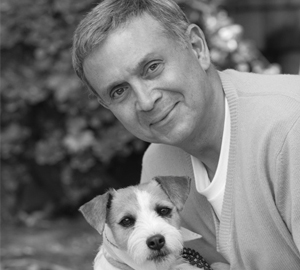
Listen as Dr. David Best shares his entrepreneurial journey, passion for living on the edge, and the creative genius behind The Doctor’s Channel.
Dr. David Best, MD, MBA, is the Founder and CEO of The Doctor’s Channel, a website for doctors with pointed, accurate, and brief content. David is the Co-Founder and CEO of MDea, a medical education company known in the pharmaceutical and biotech industry as one of the most creative medical education companies. Dr. Best is also the Co-Founder of BESTMSLs, a contract medical science liaison (MSL) company that was the very first scientifically credentialed MSL team.
Dr. David Best
Dr. David Best
Dr. Best went down the standard medical path pursing a residency in Otolaryngology. During residency, David lost interest in day-to-day clinical practice and on a whim decided to write letters to top medical advertising agencies. Listen as Dr. Best landed a position on Madison Avenue in NYC working in the heart of the medical advertising world, building the first Medical Science Liaison teams, and founding of The Doctor’s Channel.
The Idea: With the age of media snacking, David wanted to give doctors what they wanted. Listen as David shares his journey founding The Doctor’s Channel. Doctors like fun and love exciting content!
Success: Learn to have big belief in your yourself, your ideas, and take risks to make those ideas succeed.
Lesson Learned: Be fast, flexible, and quick to respond. Make sure to adequately test your ideas, and not with family/friends. In the early days of a start-up, it is hard to maintain a work-life balance.
Best Advice: Get your MBA after having experience in the business world. It will give you credibility the business industry.
Daily Success Habit: Bring your dog to work – it raises office moral and is a great marketing tool!
Healthcare Trends: There will be a rise in number nurse practitioners, with doctor’s spending more time behind screens with focus on delivering telemedicine.

Friday Feb 05, 2021
Friday Feb 05, 2021
Friday Feb 05, 2021

Listen as Sean Duffy shares his entrepreneurial journey, passion for using design and technology to tackle chronic disease, and exciting work at Omada Health.
Sean Duffy is the Co-Founder & CEO of Omada Health, a healthcare & technology company pioneering the field of digital behavioral medicine with a mission of inspiring and enabling people everywhere to live free of chronic disease. Omada is one of Fast Company’s 50 most innovative companies. Sean believes that behavioral medicine is at an incredible tipping point of innovation. He holds a BS in Neuroscience from Columbia University, was an MD/MBA candidate at Harvard, and formerly worked for Google and IDEO.
Mission statement at Omada Health
After graduating Columbia University, Sean went to Silicon Valley to work at Google. He realized that technology and healthcare was not a binary world, and decided to pursue his MD/MBA at Harvard. He spent his first summer at IDEO and discovered an alarming crisis in chronic disease. After reading a landmark diabetes trial with great scientific evidence, he saw a big opportunity to combine his passions for design, technology, and medicine and founded Omada Health. He always planned to finish medical school, but found a problem he was very excited about and wanted to solve.
What is your advice to medical students and residents interested in entrepreneurship and healthcare innovation?
Entrepreneurship is a powerful way to scale your skills set.
When, or if, should you leave MD/MBA program or residency? Find something you want to solve – You will know when the time is right when you find a problem that you must solve. Ironically when the choice becomes easy, it is the right moment. The key to business success is determination and never giving up.
What is a good approach for exploration?
Good approach – Education + Build entrepreneurial projects
Educational Resources (Must Reads!!):
Sam Altman: http://blog.samaltman.com/
Paul Gram essays (read every one): http://www.paulgraham.com/
Build entrepreneurial projects as hobbies to build your entrepreneurial skills and muscles.
The Idea: Chronic disease now kills more people than infectious disease. How can technology and design be leveraged in a scalable ways to inspire lasting behavioral change for those at risk of chronic disease? Listen as Sean shares his entrepreneurial journey and big vision for Omada Health.
Biggest Insights: Surprisingly, the greatest adoption rate with older age group! Omada continues to innovate by running small experiments & randomized control trials.
Success: Start with science and clinical rigor, build with policy, and design with commercial viability.
Best Advice: To be a leader of a team – Be authentic and be yourself – David Webster, IDEO
Daily Success Habit: Structure to-do list in the morning with four categories: urgent, today task, near term, long term. Everyday look at near term and long term, bring into today’s tasks and complete today’s tasks.
Healthcare Trends: Can technology make the biggest impact in healthcare? A wave of technology into healthcare seems incredibly unique and different from what has been tried previously with massive penetration. Listen as Sean shares his thoughts about large scale technology innovation and exciting payment transformation.

Friday Feb 05, 2021
Friday Feb 05, 2021

Listen as Dr. Arshya Vahabzadeh shares his entrepreneurial journey, exciting work at Brain Power, and the future of Psychiatry.
Dr. Arshya Vahabzadeh is the Director of Digital Health at Brain Power, a company that builds neuroscience-based software and hardware that transform current wearable computers into neuro-assistive and educational devices for autism. He is the Innovation Officer at the Massachusetts General Hospital Psychiatry Academy and Chairman of the Council on Communications of the American Psychiatric Association. Dr. Vahabzadeh is widely published in clinical neuroscience, digital health, and medical communication.
Seneca
Arshya trained as family physician at Royal College of General Practitioners in United Kingdom and was struck by the severe need for behavioral health and mental health services in daily clinical practice. To help large populations with behavioral/mental health, he pursed further training to become an academic psychiatrist in the United States. He completed psychiatry residency training at Emory University School of Medicine and his child and adolescent fellowship at Massachusetts General Hospital. Towards the end of his fellowship training, Arshya was looking to explore how to make the biggest impact in his field. Listen as Arshya shares how he balances his full-time clinical role treating patients in emergency room and maximum security prison with his entrepreneurial work in the digital health space.
The Idea: How can wearable technology address educational and behavioral needs for autism? Listen as Dr. Arshya Vahabzadeh shares his exciting work at Brain Power, a technology company that has developed the world’s first wearable educational system for autism which is based on brain science from MIT and Harvard, and built on a hardware-enhanced smart-glass.
Insights: Listening to families with children with autism allows for measurement of important outcomes not classically measured…. Such as wondering! Brain Power uses of personalization and on-demand approach with machine learning and customization to best serve their patients.
Success: Brain Power leverages smart glass technology, big data, and predictive analytics, to help children learn how their unique brains learns.
Lesson Learned: Listen to the people you are trying to serve, obtain advice from the key people in your field, but keep in mind that big discoveries are not being made by people who are not willing to take risks.
Best Advice: Surround yourself with strong, supportive, and top notch people.
Daily Success Habit: Exercises daily, eats small regular meals, and brings a two-day food survival kit food with different protein shakes and snacks during long clinical days.
Healthcare Trends: Listen as Dr. Arshya Vahabzadeh shares some of the most exciting trends in healthcare including: the future of psychiatry, big data, wearables, patient empowerment, and Neurotechnology.

Friday Feb 05, 2021
Friday Feb 05, 2021
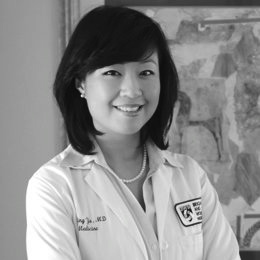
Listen as Dr. YiDing Yu shares her entrepreneurial journey, passion for healthcare innovation, and exciting work at Twiage and Atrius Health.
Dr. YiDing Yu is a practicing physician, researcher, innovator, and entrepreneur with a passion for improving health care delivery. Dr. Yu is the Chief Innovation Engineer at Atrius Health, the largest nonprofit independent multi-specialty practice in the Northeast. YiDing also is the Founder and Chief Medical Officer of Twiage, a mobile platform that empowers first responders and hospitals to deliver more timely, cost-effective care at the most crucial moments.
Woodrow Wilson
YiDing started her entrepreneurial career in high school founding two internet companies. She always wanted to become a doctor and has focus her career on how to make healthcare better. Listen as she shares her entrepreneurial journey and passion for using technology to save lives.
What is your advice for physicians interested in entrepreneurship?
Entrepreneurship is not a linear path or process. Below are YiDings steps for crafting your entrepreneurial career.
1) Clinical vs. Non-Clinical:
What is your clinical vs. non-clinical breakdown? How do you decided on how much time you want to spend innovating vs. time spent treating patients?
Dr. Yu spend 80% of her time on innovation at Atrius Health and 20% on her time treating patients.
2) Problem + Passion:
What are you passionate about and what type of problems are you looking to fix? What would you spend your extra time to get right?
3) Navigating and Conversations:
Navigating the rest of your career is about having the right conversations. If you are new to the entrepreneurship space, find a small cool start-up that could use your help. Send the founders an email and offer to volunteer your time. In return you will get an opportunity to learn and work with the companies founders and will gain great exposure to other healthcare founder and venture capitalists.
The Idea: How can you leverage technology to close the communication gap between first responders and hospital staff? Listen as YiDing shares the journey of starting Twiage to create a platform between first responders and hospital staff to improve efficient and timely high quality care during those critical moments.
Challenges: How do you get all the stakeholders to focus on your very important problem. Sale cycles for selling to hospitals can be very long, even when you have traction!
Success: Make your problem relevant, develop the right referral network, and identify early hospital adopters with innovative leadership. Get the right team on board and work with those that you enjoy spending time with and trust.
Lesson Learned: Simplicity is king – Your solution should work for your end user!
Best Advice: “Never leave any doors closed, always keep your eyes peeled for the opportunity. Never hesitate to take the risk, if it strikes your fancy or makes you curious. Don’t just take the well worn path and predictable road.”- Dr. Clay Ackerly, Chief Clinical Officer at naviHealth, Inc.
Daily Success Habit: YiDing shares her daily success habit organizing her email inbox.
Healthcare Trends: Listen as YiDing share her exciting healthcare trends.
1) Improving the patient experience in healthcare.
2) Patient satisfaction as larger components of patient quality measures.
3) Organizations and start ups that focus on patient experience will win in the long run.
Thanks for all your incredible support. We are grateful and blessed to all our listeners who support physician entrepreneurship and innovation.
Be innovative – Subscribe, share the love, and write an iTunes review at TheModernMD.com/review
Dream Big and Make it Happen,
Dr. Goodman

Friday Feb 05, 2021
Friday Feb 05, 2021
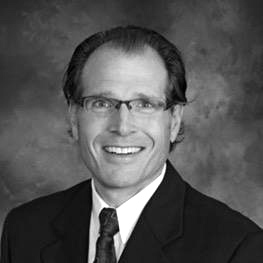
Listen as Dr. Andrew Rhinehart shares his entrepreneurial journey and exciting work at Glytec transforming diabetes care!
Dr. Andrew Rhinehart is the Chief Medical Officer at Glytec, a clinical information technology company dedicated to the mission of improving insulin management and glycemic control. Dr. Rhinehart previously served as a diabetologist and the program director of the Johnston Memorial Diabetes Care Center and Johnston Memorial Center for Comprehensive Wound Care in Virginia. He was also the Chairman of the ADA’s Primary Care Advisory Group and the first physician to be Board Certified in Advanced Diabetes Management (BC-ADM) by the American Association of Diabetes Educators.
W Scott Rhinehart
W Scott Rhinehart
Dr. Rhinehart is an internist by training with a passion for diabetes. Andy always had an entrepreneurial spirit with early influences from his family business. In high school he started a DJ company and after graduating from residency went into private practice. Listens as Dr. Rhinehart shares his entrepreneurial journey.
Andy’s Innovation Dose: Become an expert, join hospital level committees, increase credibility with credentialing, and speak at national conferences!
The Idea: How can you transform diabetes care across the continuum? Listen as Dr. Rhinehart shares his work at Glytec, a clinical information technology company dedicated to improving insulin management and glycemic control and their innovative glycemic solutions!
Success: Build a cloud based system with algorithms that are physician ordered and nursing driven. Start a glycemic management committee at your hospital.
Lesson Learned: Inpatient glycemic control is important with physician practice change as your biggest hurdle. Develop a team based interdisciplinary approach with goal of preventing hypoglycemia.
Best Advice: Listen as Dr. Rhinehart shares his best life advice.
Daily Success Habit:
Healthcare Trends:
Population Management: Team based approach to provide excellent care.
Patient Engagement: The successful office of the future has an empty waiting room. Patients are engaged before they need your help.
Healthcare Delivery/Payment Models: Value based and quality payment system.
Data: How do we leverage big data? Use actionable data and make clinical changes based information.
Thanks for all your incredible support. We are grateful and blessed to all our listeners who support physician entrepreneurship and innovation.
Be innovative – Subscribe, share the love, and write an iTunes review at TheModernMD.com/review
Dream Big and Make it Happen,
Dr. Goodman